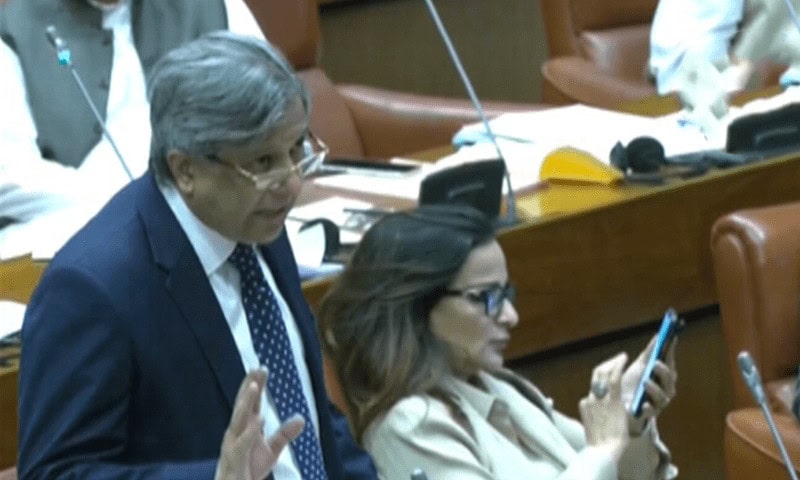ISLAMABAD – A bill to amend the century-old Official Secrets Act was referred to the relevant standing committee of the Senate on Wednesday after it faced fierce opposition from both sides of the aisle when taken up for passing in the upper house of Parliament.
A day earlier, the outgoing government quietly got the Official Secrets (Amendment) Bill 2023 passed by the National Assembly (NA) in a bid to grant blanket powers to intelligence agencies, which will be able to raid and detain citizens even under suspicion of them breaching the law.
According to the Senate agenda for Wednesday, Interior Minister Rana Sanaullah Khan was to move the bill for passing. However, in his absence, Law Minister Azam Nazeer Tarar presented the bill amid loud opposition from both sides of the aisle.
Following that, Senate Chairperson Sadiq Sanjrani said the Official Secrets (Amendment) Bill 2023 stood referred to the standing committee.
Amendments to the Secrets Act have broadened the definitions of military installations and brought digital and modern means of communication into the law’s ambit. According to experts, this could bring vloggers and bloggers within the ambit of the law as well.
The definition of a “document” has been widened as it now includes “any written, unwritten, electronic, digital, or any other tangible or intangible instrument” related to the military’s procurements and capabilities.
Likewise, the definition of “enemy” introduced in the proposed law states: “Any person who is directly or indirectly, intentionally or unintentionally working for or engaged with a foreign power, foreign agent, non-state actor, organisation, entity, association or group guilty of a particular act… prejudicial to the safety and interest of Pakistan.”
Experts term this section “against the principles of natural justice” as it treats unintentional contact on par with planned espionage.
The proposed law is going to empower the Inter-Services Intelligence (ISI) and Intelligence Bureau (IB) to raid and arrest citizens over the suspected breach of official secrets, while simply disclosing the name of a secret agent will also be considered an offence.
Through an amendment in Section 11, the lower house gave vast powers to officials of intelligence agencies as they would be allowed to “at any time, enter and search any person or place, without warrant, and if necessary, by use of force, and seize any document, sketch, or like nature, or anything which is or can be evidence of an offence committed or suspecting of been committed, under this act”.
An amendment in Section 6 proposes a penalty on a citizen with a prison term of three years for disclosing the “identity of the members of the intelligence agencies or the informants or sources”.
Moreover, clauses related to prohibited areas have been amended and it would be an offence if “someone access, intrude, approach or attack any military installation, office, camp office or part of building”.
At present, the offence is restricted to such movement during the time of war only, however, the proposed legislation has expanded this to peacetime as well.
Section 3 is being renamed from “penalties for spying” to “offences”. With slight amendments to the existing offences, it has added the photography through drone cameras of prohibited areas as a crime.
The amendments in Section 4 term a visit to the address of a foreign agent within or outside Pakistan as an offence.
The proposed law empowers the Federal Investigation Agency (FIA) and the officials of intelligence agencies to investigate suspects for violation of the Official Secrets Act.
It says: “An investigating officer under this act shall be an officer of the Federal Investigation Agency not below the rank of BPS-17 or equivalent. The said officer shall be designated by the Director General [of] FIA for the purpose of investigation. If the Director General [of] FIA deems necessary, he may constitute a joint investigation team, convene by such officer and consisting [of] such other officers of intelligence agencies as he may appoint.”
The JIT is supposed to complete the investigation in 30 working days and the challan would be submitted to the special court through public prosecutor.
The law also deals with the admissibility of the evidence and states: “All material collected during the course of inquiry or investigation, including electronic devices, data, information, documents, or such other related material, which facilitates the commission of any offence under this act, shall be admissible.”













